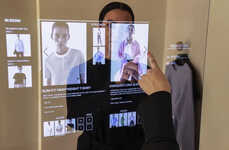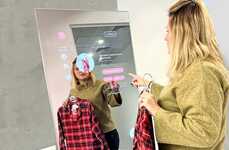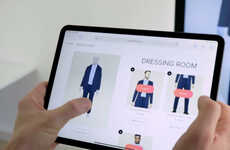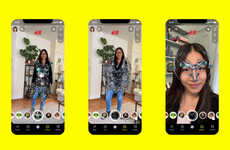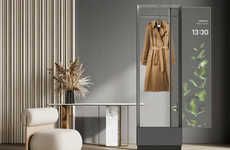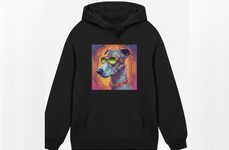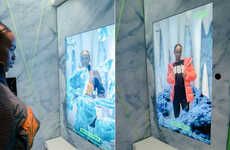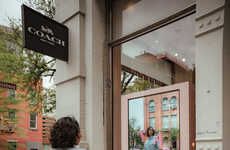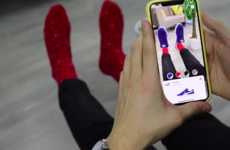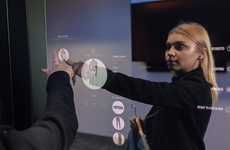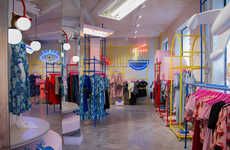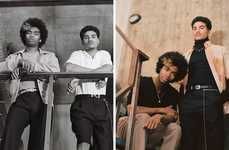
A New H & M Smart Mirror Will Help Consumers Select Stylish Picks
Jana Pijak — November 12, 2018 — Business
References: hm & businessinsider
A new H&M smart mirror trial will be tested inside the Swedish fast fashion retailer's Times Square, New York flagship. The connected retail device aims to increase consumer engagement while helping to push sales with outfit-combining and product-suggesting features.
Developed in partnership with Microsoft, Visual Art and Ombori, the H&M smart mirror allows in-store visitors to take a selfie with both voice and face recognition features. From there, consumers are able to virtually try on products and access suggestions to other related items and outfit pairing ideas. Lastly, those looking to purchase these products can buy directly via a QR code which shows up conveniently on screen.
Though only in its trial stages, the smart mirror has already received positive feedback from shoppers, making it a successful interactive feature that H&M could potentially adapt in other locations down the road.
Image Credit: Visual Art
Developed in partnership with Microsoft, Visual Art and Ombori, the H&M smart mirror allows in-store visitors to take a selfie with both voice and face recognition features. From there, consumers are able to virtually try on products and access suggestions to other related items and outfit pairing ideas. Lastly, those looking to purchase these products can buy directly via a QR code which shows up conveniently on screen.
Though only in its trial stages, the smart mirror has already received positive feedback from shoppers, making it a successful interactive feature that H&M could potentially adapt in other locations down the road.
Image Credit: Visual Art
Trend Themes
1. Smart Mirror Technology - Smart mirrors provide an opportunity for brick-and-mortar stores to digitize the in-store experience and increase consumer engagement.
2. Virtual Try-on - Virtual try-ons have the potential to revolutionize the fashion industry by increasing conversions and reducing return rates for online shoppers.
3. Personalized Shopping - Personalized shopping can be achieved through technologies such as voice and face recognition, allowing retailers to offer tailored recommendations and effectively increase sales.
Industry Implications
1. Retail - Retailers can use smart mirrors to take advantage of new technology and provide a unique in-store experience that drives engagement and sales.
2. Fashion - Fashion brands can use virtual try-on technology to allow customers to test new products and see how they look before making a purchase, increasing conversion rates and reducing return rates.
3. Technology - Technology companies can develop and sell smart mirrors and virtual try-on software to retailers and fashion brands looking to improve their in-store and online experiences.
5.7
Score
Popularity
Activity
Freshness


